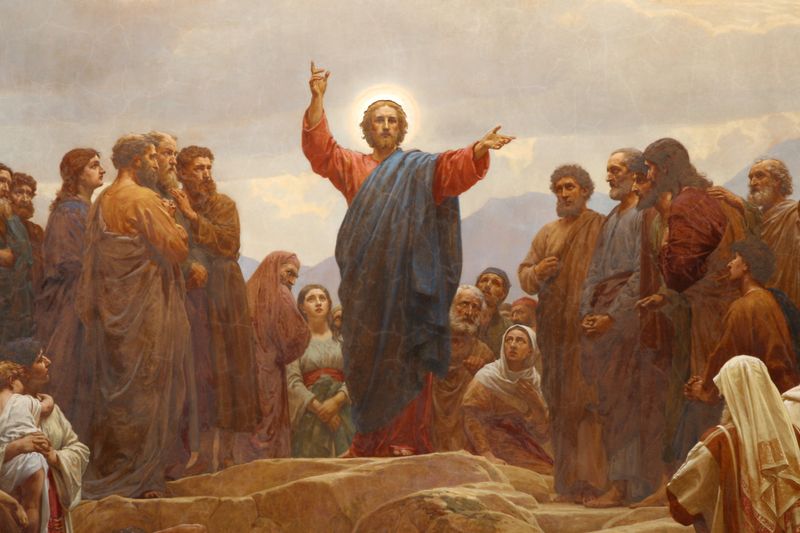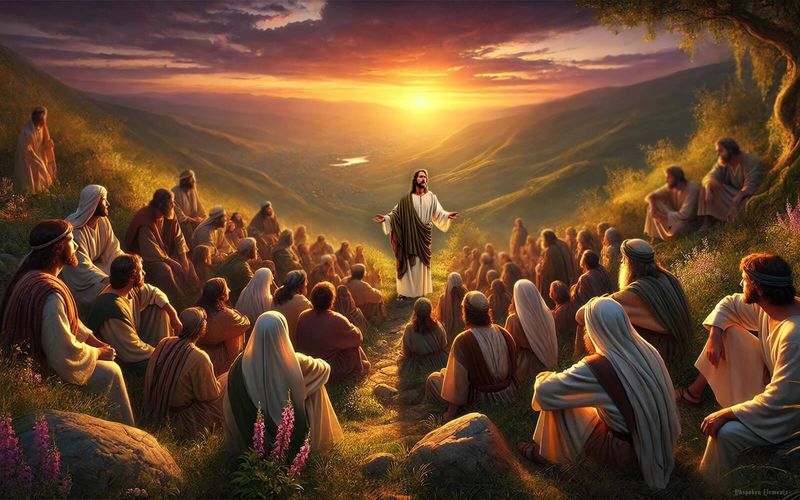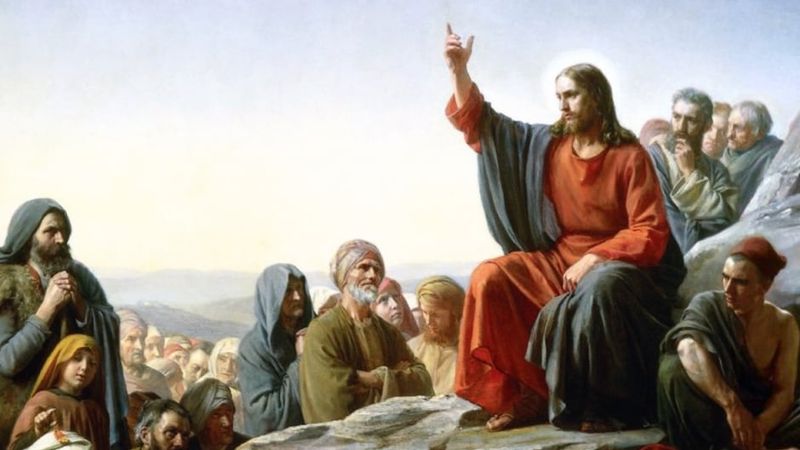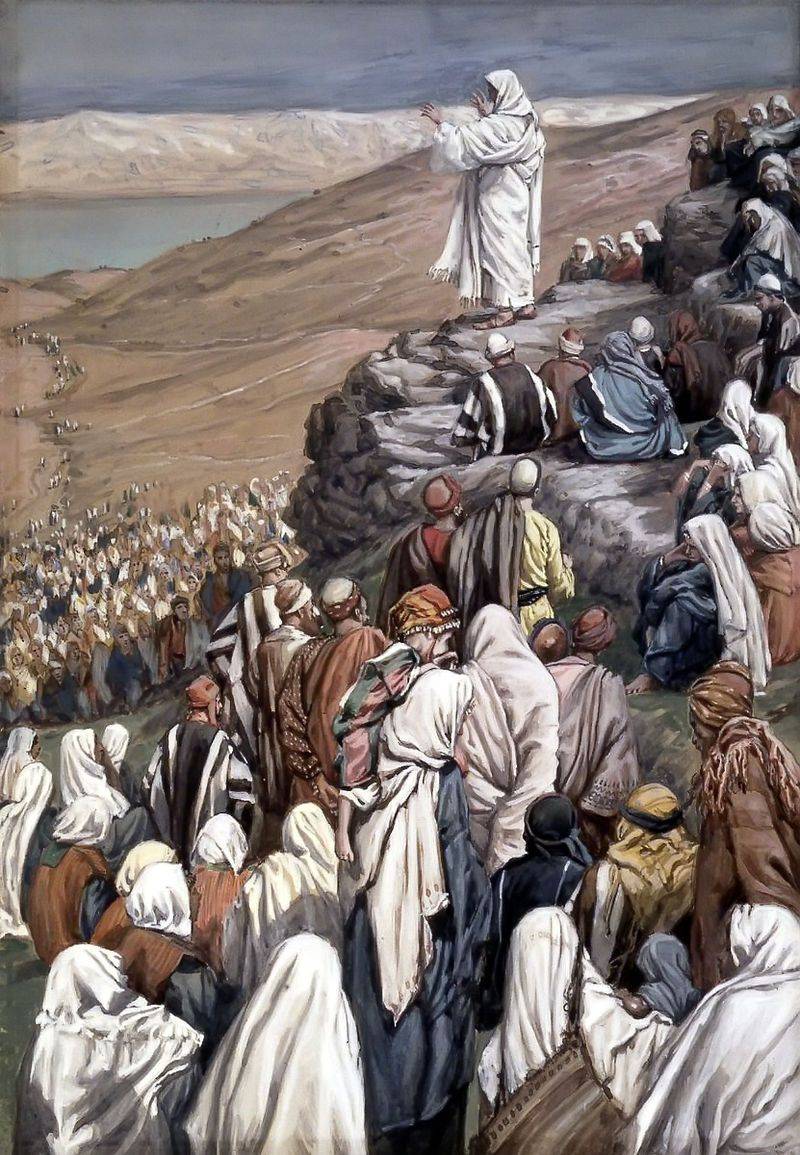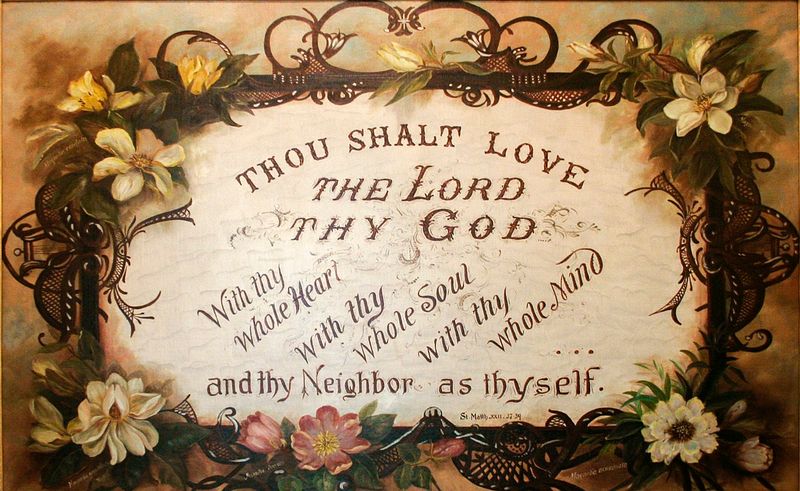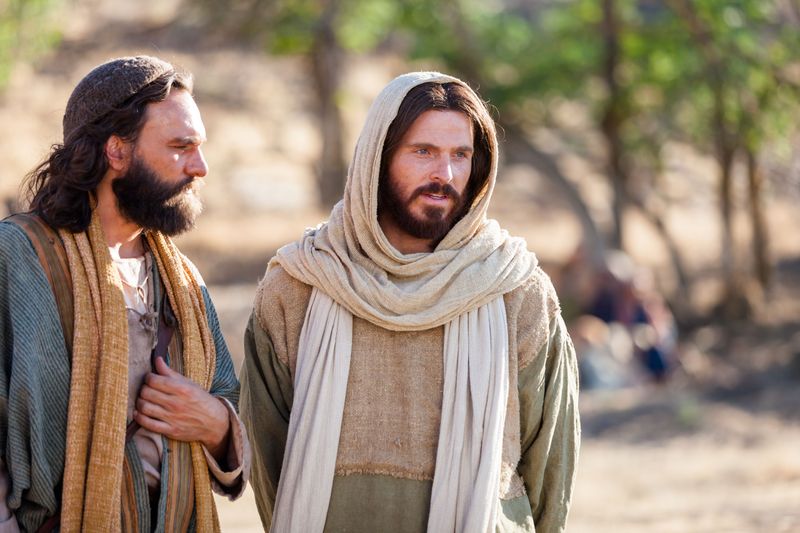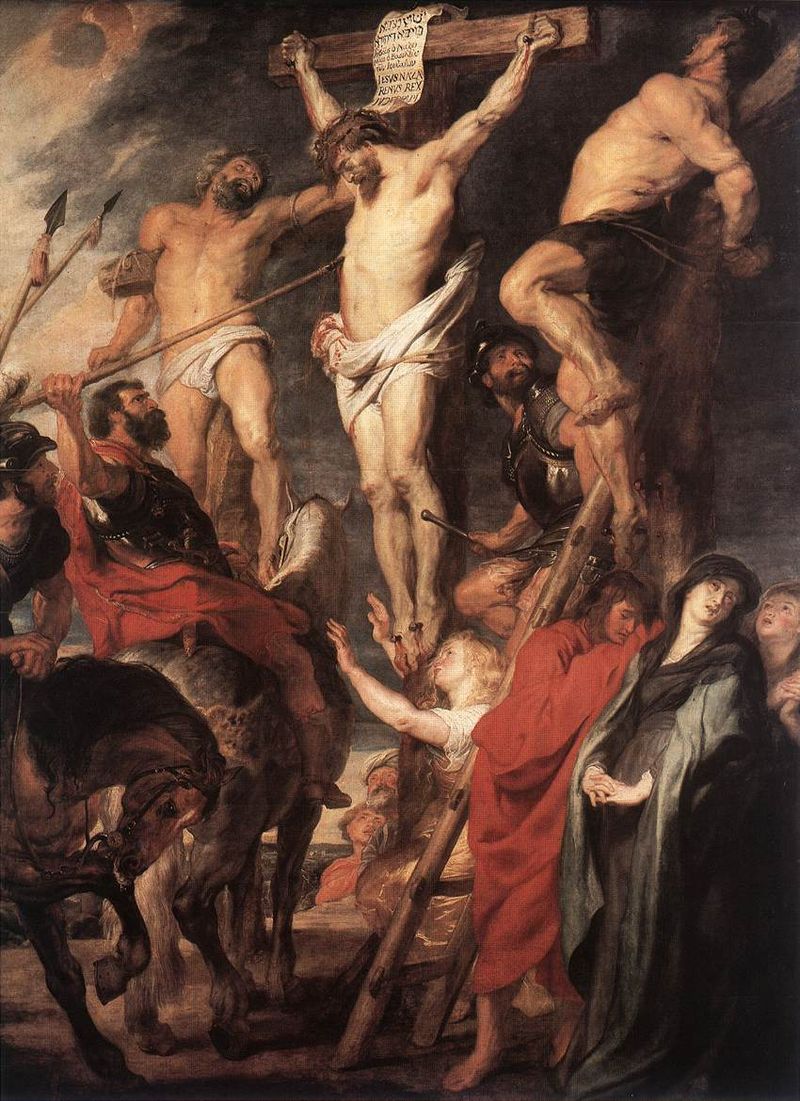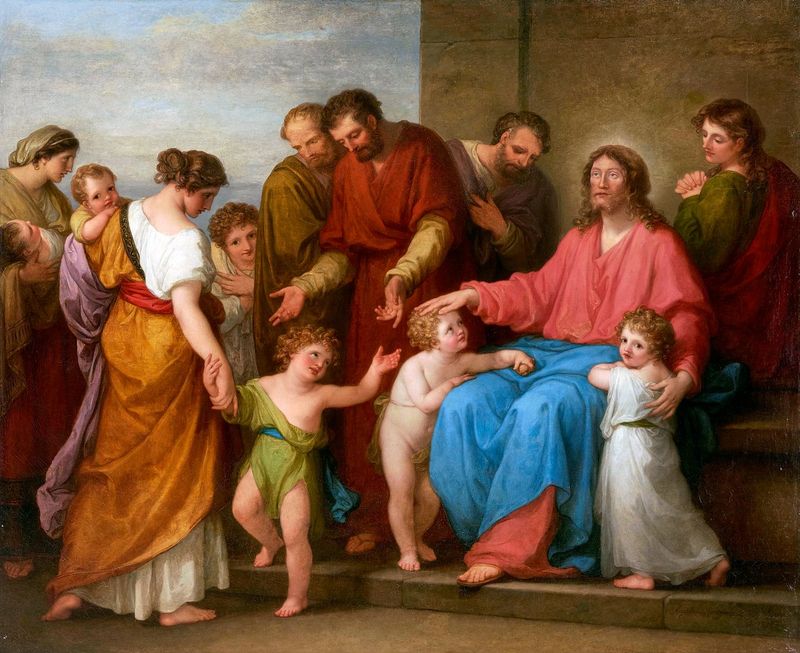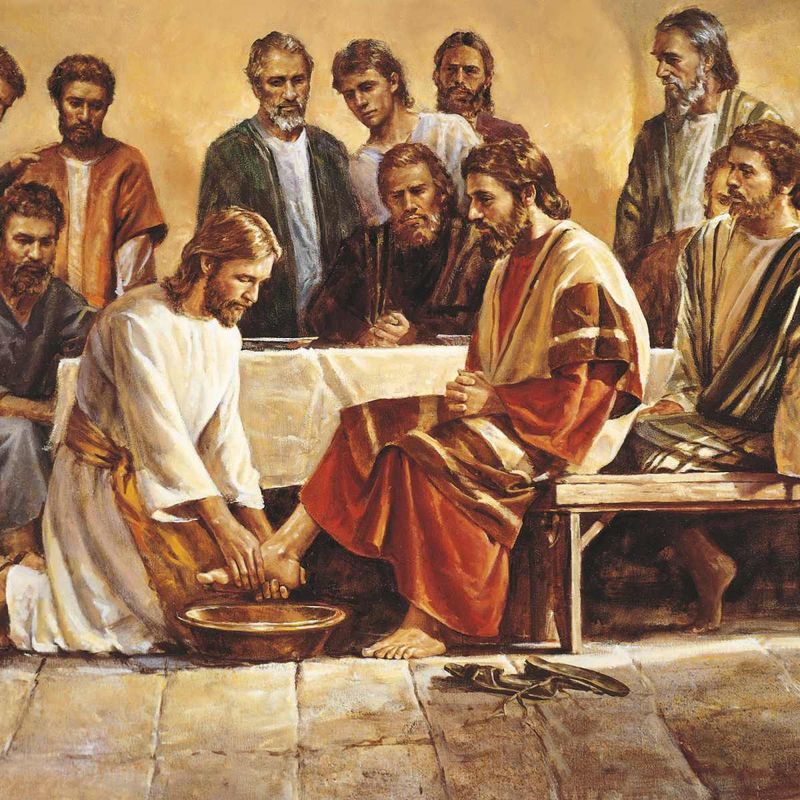Jesus of Nazareth spoke words that have echoed through centuries, challenging believers and non-believers alike.
His sayings—sometimes comforting, often challenging, and occasionally puzzling—continue to shape our understanding of faith, love, and human relationships.
These fifteen powerful statements from Jesus still ignite conversation and deep reflection in our modern world.
1. Love Your Enemies
“Love your enemies, do good to those who hate you.” These radical words flip our natural instincts upside down. Most of us struggle even to be kind to people who annoy us!
Jesus wasn’t suggesting we simply tolerate those who wrong us. He demanded active compassion toward them—a revolutionary concept in his time and ours.
This teaching challenges us to consider: is true strength found in retaliation or in the courage to show love when it’s least deserved?
2. Judge Not
“Judge not, that you be not judged.” Few realize how frequently this saying gets misused in modern culture. The statement doesn’t prohibit all forms of discernment or moral evaluation.
Instead, Jesus warned against self-righteous, hypocritical judgment—the kind that sees others’ flaws while ignoring our own. He followed this with talk of logs in eyes, highlighting the absurdity of our selective vision.
The challenge remains: can we evaluate behaviors without condemning persons?
3. The First Shall Be Last
“Many who are first will be last, and the last first.” These words upend our status-obsessed world. Jesus repeatedly challenged conventional hierarchies, suggesting God’s kingdom operates by different rules.
The wealthy, powerful, and privileged might find themselves surprised by their standing in eternal matters. Meanwhile, the overlooked, marginalized, and humble could discover unexpected honor.
This saying confronts our ambitions: are we climbing social ladders that ultimately lead nowhere important?
4. Turn the Other Cheek
“If someone slaps you on one cheek, turn to them the other also.” Far from promoting passivity, Jesus was teaching nonviolent resistance. In his cultural context, turning the other cheek forced the aggressor to treat you as an equal.
This wasn’t about becoming a doormat. It was about maintaining dignity while refusing to mirror an opponent’s violence.
Modern peacemakers from Gandhi to King found inspiration here, discovering that breaking cycles of retaliation requires extraordinary courage.
5. The Rich Young Ruler
“It is easier for a camel to go through the eye of a needle than for a rich person to enter God’s kingdom.” This statement shocked Jesus’ listeners—and still rattles us today.
After a wealthy man couldn’t part with possessions to follow him, Jesus highlighted how material attachment creates spiritual barriers. His hyperbole of the camel and needle emphasized the impossibility of divided loyalties.
The question lingers: what possessions possess us, preventing fuller devotion to higher purposes?
6. Blessed Are the Peacemakers
“Blessed are the peacemakers, for they will be called children of God.” Among Jesus’ Beatitudes, this one stands out for its active nature. He wasn’t blessing peace-lovers or peace-wishers but peace-makers.
Creating harmony requires rolling up sleeves and entering conflict zones with reconciliation as the goal. Jesus elevated this difficult work to family resemblance with God himself.
In our divided world, this teaching asks: are we contributing to fragmentation or actively building bridges between opposing sides?
7. I Am the Way
“I am the way, the truth, and the life. No one comes to the Father except through me.” These words spark intense debate in our pluralistic society. Jesus made an exclusive claim about access to God.
Followers see this as beautiful assurance—a clear path forward. Critics view it as problematic exclusivity in our diverse world.
The statement forces consideration: was Jesus making an arrogant claim, or was he, as Christians believe, simply stating his unique identity and purpose?
8. The Greatest Commandment
“Love the Lord your God with all your heart, soul, and mind. And love your neighbor as yourself.” When asked to identify the most important commandment, Jesus brilliantly distilled hundreds of religious rules into this dual love mandate.
He connected vertical devotion to God with horizontal compassion for others. Neither exists properly without the other.
The simplicity feels deceptive because fulfilling these loves demands our entire being. Do we compartmentalize our faith, or does it integrate all dimensions of our lives?
9. Forgive Seventy Times Seven
“Forgive not seven times, but seventy-seven times.” When Peter thought he was being generous suggesting forgiveness seven times, Jesus multiplied that number dramatically. His point wasn’t mathematical but transformational.
Kingdom people don’t keep forgiveness ledgers. They develop forgiving character that reflects God’s unlimited mercy.
This challenges our tendency to nurse grudges and keep score of wrongs. The question remains: have we accepted forgiveness while withholding it from others?
10. My God, Why Have You Forsaken Me?
“My God, my God, why have you forsaken me?” Jesus’ cry from the cross reveals the depth of his suffering. Quoting Psalm 22, he expressed the anguish of divine separation—something beyond physical pain.
For believers, this moment represents Jesus experiencing the ultimate consequence of sin: separation from God. He felt abandoned so we never would be.
His vulnerable question gives voice to human suffering and validates our own questions during dark times.
11. You Must Be Born Again
“You must be born again.” Speaking to Nicodemus, a religious leader, Jesus declared that external religion wasn’t enough. Spiritual rebirth—a complete inner transformation—was necessary.
This mysterious concept confused Nicodemus and still puzzles many today. Jesus compared this spiritual birth to wind: invisible yet powerfully evident in its effects.
The saying challenges both religious and non-religious alike: is external compliance enough, or does authentic spirituality require heart transformation?
12. I Thirst
“I thirst.” Among Jesus’ final words, this simple statement reveals his complete humanity. The Creator of oceans experienced desperate physical need.
Theologians note the irony: he who offered living water to others now lacked even basic hydration. This vulnerable moment connects Jesus to every person who has experienced deprivation.
Beyond physical meaning, his words suggest spiritual reality too—his deep desire for connection with humanity, his longing for us even amid his suffering.
13. Let the Little Children Come
“Let the little children come to me, and do not hinder them.” When disciples tried shooing away children as unimportant distractions, Jesus firmly corrected them. In a culture where children lacked status, his welcome was revolutionary.
He went further, declaring children exemplars of faith—models for adults to imitate. Their simple trust and openness apparently demonstrated qualities essential for spiritual life.
This teaching confronts our achievement-oriented society: do we value productivity and status more than childlike receptivity?
14. Take Up Your Cross
“Whoever wants to be my disciple must deny themselves, take up their cross, and follow me.” Jesus didn’t promise his followers comfort or prosperity. Instead, he invited them to a path of sacrifice.
His original audience understood crosses weren’t jewelry but instruments of death. He called followers to die to self-interest and embrace sacrificial living.
This counters prosperity-focused spirituality, asking instead: are we willing to embrace discomfort and sacrifice for something greater than personal gain?
15. I Am Among You as One Who Serves
“I am among you as one who serves.” After washing his disciples’ feet—a slave’s task—Jesus redefined leadership. While worldly leaders lord authority over others, Jesus embodied servant leadership.
His kingdom inverts power structures: greatness comes through humble service, not domination. The towel, not the crown, became his leadership emblem.
This revolutionary concept challenges both religious and secular leadership models. Are we seeking positions to be served, or opportunities to serve others?

